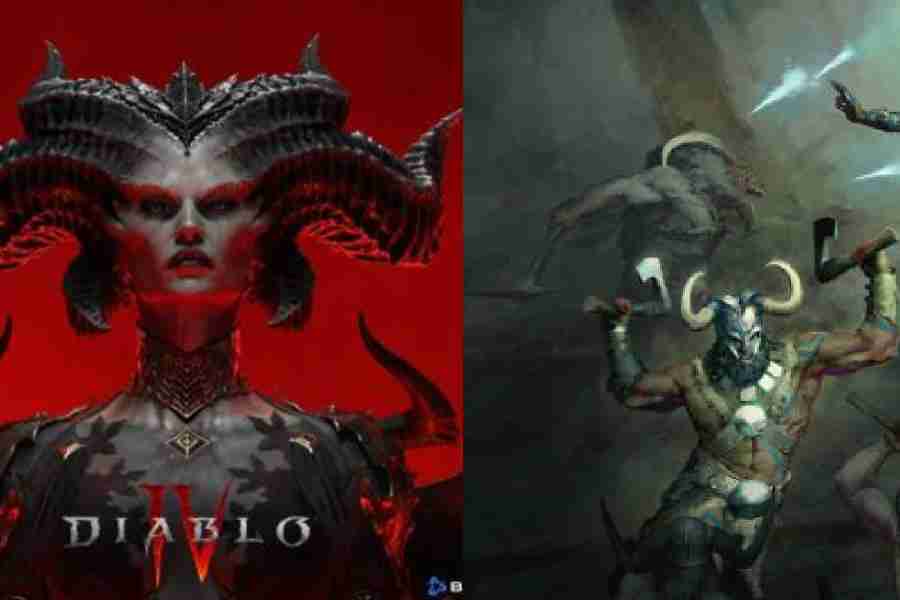With hits such as World of Warcraft and Diablo, Blizzard Entertainment is considered a progenitor of the “forever game”, addictive experiences that players cannot put down because they seemingly never run out of quests to complete or gear to collect.
Part of Diablo’s deviousness was that it took forever to get what you wanted. As players fought through dungeons, slain monsters dropped loot, such as weapons and jewellery that would empower their characters. Sometimes they were randomly rewarded with rare and exceedingly potent loot.
The endless dopamine-inducing hunt was a winning formula that persuaded Diablo players over the past 26 years to invest hundreds, sometimes thousands, of hours into building the perfect character. But as the studio, now part of Activision Blizzard, prepares to release Diablo IV for computers and Xbox and PlayStation consoles, it is modifying its casino-like tactics to build a forever game.
The industry has transformed since Diablo III was released over a decade ago. Diablo IV will now face an array of competitors, not just other formidable forever games such as Destiny and Fortnite, but also streaming services that are battling to monopolise people’s time.
“Games have become more of a hobby or a lifestyle,” said Rod Fergusson, the Blizzard executive producer overseeing Diablo IV. “You have to think about it as this live service.”
Taking cues from modern forever games, Blizzard plans to release quarterly updates to Diablo IV that introduce new quests, storylines, items and gameplay mechanics. People who engage each season can unlock in-game rewards through battle passes, a tactic for player retention.
Blizzard is emphasising the storytelling that in past Diablo games was treated like an afterthought. Diablo IV returns to a dark, heavy-metal aesthetic and centres on the antagonist Lilith, daughter of the Lord of Hatred, who has been resurrected by cultists; player-controlled sorcerers, barbarians, rogues, necromancers and druids will pursue her as she wreaks havoc.
In a first for the franchise, Blizzard said, each player’s unique character will be rendered in real-time to appear inside the cinematic sequences intended to make Diablo IV’s story more immersive. And although defeated foes will continue to litter rare items at random, there will now be dungeons and quests where specific pieces of gear, such as a special pair of boots or a dagger, can be found.
“Players don’t want to feel they’re in a fight with the game,” Fergusson said. “They’ve come to expect to have some control over the situation.”
There is no guarantee that longtime Diablo fans will appreciate the changes. Diablo III featured a virtual auction house where players could buy and sell gear with real money, but Blizzard shut down the store, concluding it “ultimately undermines Diablo’s core gameplay: kill monsters to get cool loot”.
The studio said each quarterly update would showcase fresh storylines, including quests featuring old and new characters, and concepts that shift the dynamics of how the game was played. Players who complete certain tasks will be able to unlock perks, including currency that can be used to buy cosmetic upgrades; although anyone can play on a free tier of the battle pass, those who spend $10 a month get access to a more exclusive set of premium outfits.
Diablo IV embraces the popular open-world format where players can freely explore their environment and complete optional tasks at their leisure before resuming the main story. Each day, timed events will trigger at a random hour and location in Diablo IV, at which point up to 12 players can congregate to fight a boss together and earn special loot.
By making a modern forever game, Blizzard’s staff has committed to producing Diablo IV for eternity. Fergusson said the effort was worthwhile because although gamers now have unfettered access to digital content, they tend to talk about the one game they played all year, not the new game they played each month.
“You definitely have to have a team,” he said, “that can respond to that consumptive nature of players to say, ‘Hey, you want a new experience in this existing game? How do I keep giving that to you?’”
NYTNS

